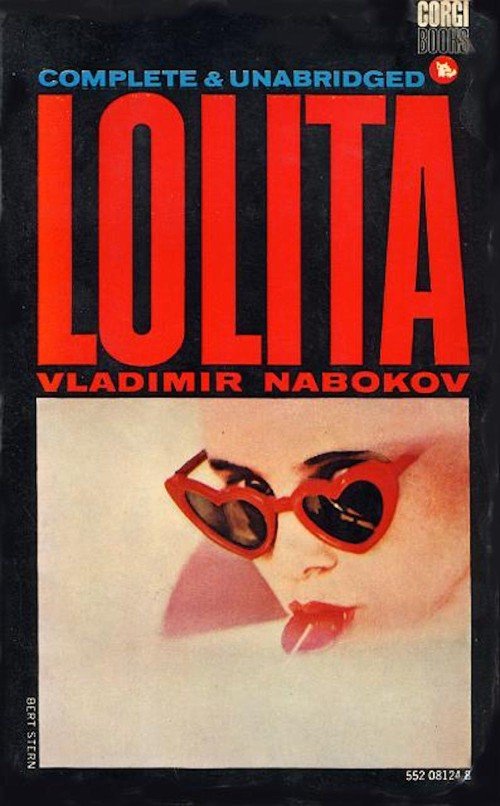
In Lolita, Nabokov masterfully presents Humbert Humbert as a character whose charm and intelligence draw the reader in. Despite being viewed by society as an immoral villain, he is gifted with exquisite verbal skills which allow him to articulate his opinion on various aspects of life - be it negative or positive. His captivating style brings out both sympathy from the audience and admiration for his mastery of language.
The reader is ensnared by Humbert's devilish charisma and his romanticizing of pedophilia. He cunningly attempts to paint himself with the same brush as other celebrated artists, claiming society has kept them from exploring this taboo predilection. Despite being aware that something very wrong exists within these words, one can’t help but be affected by it all - captivated in a state between empathy and repulsion for such an undeniably tragic villain.
Humbert Humbert distracts our attention from the stark horrors of his evils by obscuring the details in clever and poetic innuendos and metaphors. But the careful reader can see beyond Humbert’s flowery prose to detect an uncomfortable reality. This duality of perception contributes to making Lolita a worthy read.
An Enjoyable Read
Reading Lolita is like a journey through the poet’s soul. Every word written in exquisite English acts as an invitation to explore, reveling in its graceful prose and rhythmical sound plays. The reader can almost feel themselves being transported by vivid imagery that captures each moment with mesmerizing power; where magical descriptions bring this world of emotions to life - one feeling at a time.
The story is not only tightly patterned, but imaginatively constructed to maintain a connection with the larger literary world with rich, wide-ranging allusions and parodies. These connections not only expose Humbert’s predispositions and function to advance his narrative, but they also serve as a mechanism by which Nabokov interferes with his narration and advance his own narrative or judgment on wider societal constructs or the literary world as the case may be.
Nabokov did not just set out to tell a story. He left out several important details throughout much of the novel but left just enough clues for the perceptive and hardworking reader to find. For example, although Quilty’s presence throughout much of the novel was never openly declared, several hints pointed at this fact.
In Lolita, Nabokov showcases his wit and creativity with an abundance of puns, allusions and clever references. Unmasking these literary gems heightens the excitement for readers as they explore this classic tale afresh.
A Second-Hand Character View
Nabokov has crafted the epitome of sophistication in Humbert Humbert, serving as a warning that elegance and intellect do not always equal morality. His mastery over language paints an image of beauty concealing sinister intentions - something we should bear in mind when measuring someone's character.
Here Humbert Humbert’s character is true to life. His contradictions are realistic. Humbert is driven by selfishness and arrogance, but he can understand that others are going through pain and that he had done evil. But he is simply too selfish to stop himself. We see other characters through Humbert’s unreliable and biased lens, and their characteristics and personality go through a sort of “Humbertification”- a solipsizing treatment of otherwise authentic individuals.
Humbert cruelly reduces Charlotte to little more than a trifling annoyance, dismissing her as pretentious and completely oblivious to her inner beauty. His feelings of resentment at the possibility that she could snatch away his beloved Lolita run deep in every scathing description he gives of this woman—a vivid display of how easily personal bias can color one's perception.
A Critical Gold-mine
Ever since Nabokov's Lolita hit the shelves, it has been a source of heated debate about literature and societal issues such as gender roles. Readers have passionately argued over whether Humbert’s perspective is justified or not, while also forming their own interpretations of characters like Lolita and Charlotte to draw conclusions about themselves in return. This timeless classic continues to spark important conversations that challenge us today just as much as when it was first published decades ago!
Nabokov's Lolita revolutionized the literary world with its ambitious, free-flowing prose unlike anything seen before. Feminist readings showed us how people had accepted Humbert’s demeaning view of Lolita as an indication of a problematic masculinist outlook in society at large. This powerful story has inspired countless other authors to pursue their own postmodern paths and examine issues around literature and aesthetics like never before.
Lolita is an enduring masterpiece because the admirable and enchanting capacity for beauty, as seen in Humbert’s evocative narrative, is cojoined in a twisted but deceptive way with the phenomenon of evil. Humbert’s talents for words help to mask Nabokov’s subtle moral intentions, challenging the reader to be more careful and perceptive and to fight away the cognitive dissonance that Humbert’s charm was sure to produce.








